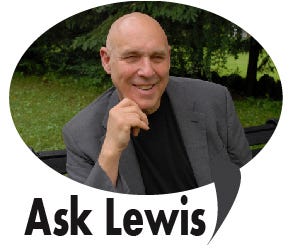Happiness Tips and Life Hacks - The Best Symptoms of Happiness
What is the difference between extreme sadness, unhappiness, and depression?
“These newsletters serve a demographic of highly intelligent readers, and deep thinkers with a passion for ideas, critical thinking, and unknown possibilities. The path to finding happiness are among those ideas. Readers of my posts are usually tired of being patronized elsewhere by fact-less, opinionated know-nothings, who complain about everything they don’t like, but lack a willingness to think about, find resources, or create life hacks, shortcuts, and solutions to fix what they don’t like.”
——————————————————————————————————————
On a personal note: Please excuse grammatical errors, typos, repetition, and any general nonsense, and such in this post. I am getting a bit older now, and I have about 20,000 pages of information that must get published before I leave the mortal coil. I simply write and publish more than my humble editors are able to correct. If you find enough errors you are welcome to contact me about being an editor of my work.
Thanks for sharing this newsletter with your friends and associates.
Join us at our free self-improvement for beginners Group ad Forum for free tips, tools, and strategies to become a happier person
https://www.facebook.com/groups/455029215769173
———————————————————
Q. Lewis, I want to be a happier person and I’m exploring the symptoms of happiness as part of this process. The question keeps arising, what is the difference between being sad, unhappy, or clinically depressed?
A. Mental health professional all have their own way of making distinctions here, and clearly they are not uniform. I would say there is no clear definition concerning constant unhappiness and clinical depression. In fact, the line between extreme, chronic unhappiness and clinical depression is a thin one. It is easier to simply define the best symptoms of happiness and then see what is lacking.
Extreme unhappiness and chronic depression are the most commonly experienced emotional challenges and have been with us since the beginning of time. These emotional states have been known by many names including despair, melancholy, extreme unhappiness, and sadness. One of the reasons why these emotional states are so widespread is, in no small part, due to the fact that the words “extreme unhappiness”, and “chronic depression " encompass a wide range of physical and psychological symptoms. In its most extreme form, suicide can be the end result of extreme unhappiness and chronic depression.
Public perception and medical approaches to chronic unhappiness/ sadness/depression are determined by complex interactions among the public, the media, politicians, and the medical establishment. Chronic unhappiness/sadness/depression appears in many forms and at many levels of severity. In the early stages of the condition, a person may experience a single symptom or a combination of symptoms that have come to be associated with clinical depression. These symptoms may include loss of appetite, loss of interest in hobbies, various sleep disturbances (including insomnia), and loss of sex drive, among others.
Happiness is being content with what you have, living in freedom and liberty, having a good family life, and good friends.
Divyanka Tripathi
The Takeaway
Being sad, unhappy, or having some depression symptoms does not necessarily mean that a person is in a clinically depressed state. We all experience life events and challenges that challenge our mental and emotional balance. Healthy grief and depression due to extreme events may last a few weeks or even longer. Normally, a person will eventually come out of the trauma. But some do not. These individuals seem to sink deeper into a swirl of seemingly ever darker symptoms. When these symptoms last longer than three weeks or a month, and the individual experiences a weight loss of more than five percent, and/or is fatigued, has a loss of hope, a sense of despair, and slow and/or distorted thinking, then this individual may be experiencing clinical depression.






